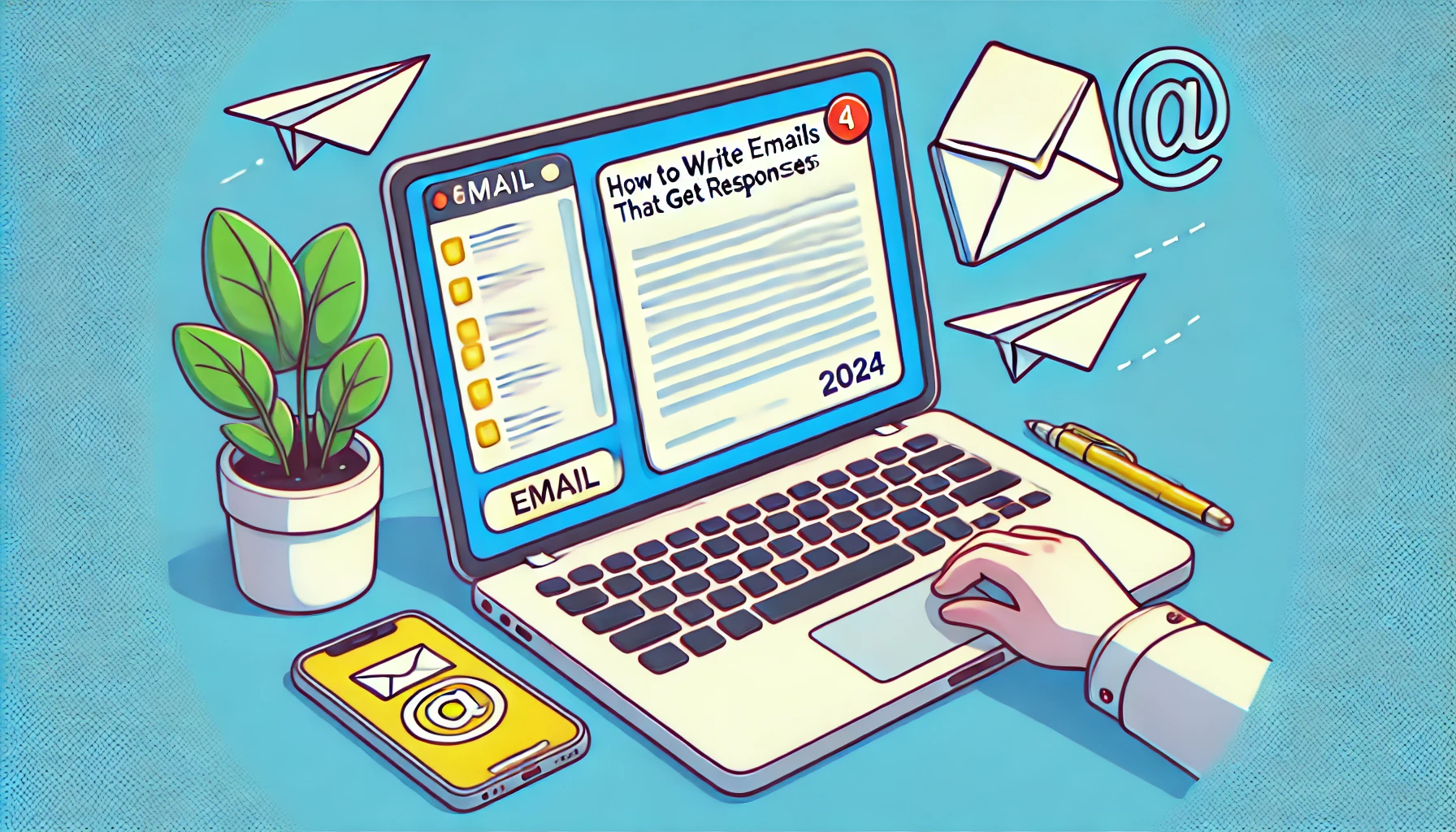
How to Write Professional Emails That Get Responses
Learn how to write professional emails that get responses. Simple tips, real examples, and templates to help you write better work emails.
Writing professional emails is a crucial skill in today's workplace
Did you know that the average office worker gets 121 emails every day? That's a lot of digital noise to cut through! Even more interesting: professionals spend about 28% of their workday just dealing with emails. That's why writing clear, professional emails isn't just nice to have – it's essential for your career success.
Why Good Email Writing Matters
Think of your email like a digital handshake - you want it to be firm and confident, not weak and sloppy. Just like you dress up for an important meeting, your emails need to look professional too.
Need help writing better emails? Try our Free Email Rewriter to make your emails more professional.
The Simple Recipe for Professional Emails
1. Write Clear Subject Lines
Your subject line is like a newspaper headline - it needs to grab attention and explain what's inside.
✅ Do:
- Be specific: "Website Project Update - Need Feedback by Friday"
- Include action items: "Quick Approval Needed: Q4 Budget"
- Use keywords: "Meeting Request: Q1 Planning Session"
❌ Don't:
- Write vague subjects: "Quick question"
- Use ALL CAPS: "URGENT MEETING TODAY"
- Leave it blank (yes, people do this!)
2. Start Your Email Right
Your greeting sets the tone for the entire email. Match your greeting to your relationship with the recipient.
✅ Do:
- "Dear Mr./Ms. [Last Name]" - for formal or first-time contacts
- "Hi [Name]" - for colleagues you know
- "Hello team" - for group emails
❌ Don't:
- "Hey!" - too casual for business
- "To whom it may concern" - shows you didn't do your homework
- Skip the greeting entirely
3. Get to the Point
Remember: the average person spends just 11 seconds reading an email!
✅ Do:
- State your main point in the first sentence
- Use bullet points for multiple items
- Keep paragraphs to 2-3 lines
❌ Don't:
- Start with long pleasantries
- Bury important information
- Mix multiple topics
4. End With Action
Every email should have a clear next step.
✅ Do:
- Be specific: "Please review and approve by Friday"
- Make it easy: "Just reply 'yes' to confirm"
- Set deadlines: "Need your input by EOD"
❌ Don't:
- End vaguely: "Let me know what you think"
- Leave next steps unclear
- Forget to say thank you
Real-Life Email Examples That Work
Busy Manager Email Template
Subject: Quick Decision Needed - Project Timeline
Hi [Name],
We need your input on the project timeline:
Options:
- Start next week (faster delivery)
- Start next month (lower cost)
Which do you prefer? Just need a quick yes/no.
Thanks,
[Your Name]
Client Follow-Up Template
Subject: Next Steps - Website Project
Hi [Name],
Quick check-in about our project:
✓ Homepage design is ready
✓ Content needs your review
✓ Launch scheduled for [date]
Could you review the design at [link] by Friday?
Best regards,
[Your Name]
Team Update Template
Subject: Weekly Team Update - Key Points
Hi team,
Here's what you need to know:
Updates:
✓ New project starting Monday
✓ Team meeting moved to 2 PM
✓ Deadline extended to Friday
Questions? Let me know!
Best,
[Your Name]
Email Success Checklist ✅
- Clear subject line
- Professional greeting
- Main message in first paragraph
- Clear ask or next step
- Professional closing
- No spelling mistakes
- Proper formatting
Common Email Questions Answered
How fast should I reply to work emails?
Try to respond within 24 hours, even if it's just to say "I'll get back to you soon."
Should I use emojis in work emails?
Save them for colleagues you know well. Skip them for formal emails or new contacts.
How long should my email be?
Aim for 5-6 sentences max. If it's longer, consider a meeting instead.
Is it okay to send late-night emails?
Better to schedule them for early next morning to respect work-life boundaries.
Final Thoughts
Writing professional emails doesn't have to be hard. Keep it clear, keep it polite, and get to the point. The more you practice, the better you'll get!
Last updated: October 26, 2024
Other Posts You Might Like
- Another Word for Problem Solver: 30+ Alternatives - Enhance your professional vocabulary
Join the Waiting List
By joining the waiting list, you'll be among the first to access our upcoming Chrome extension and standalone app, designed to improve your writing.